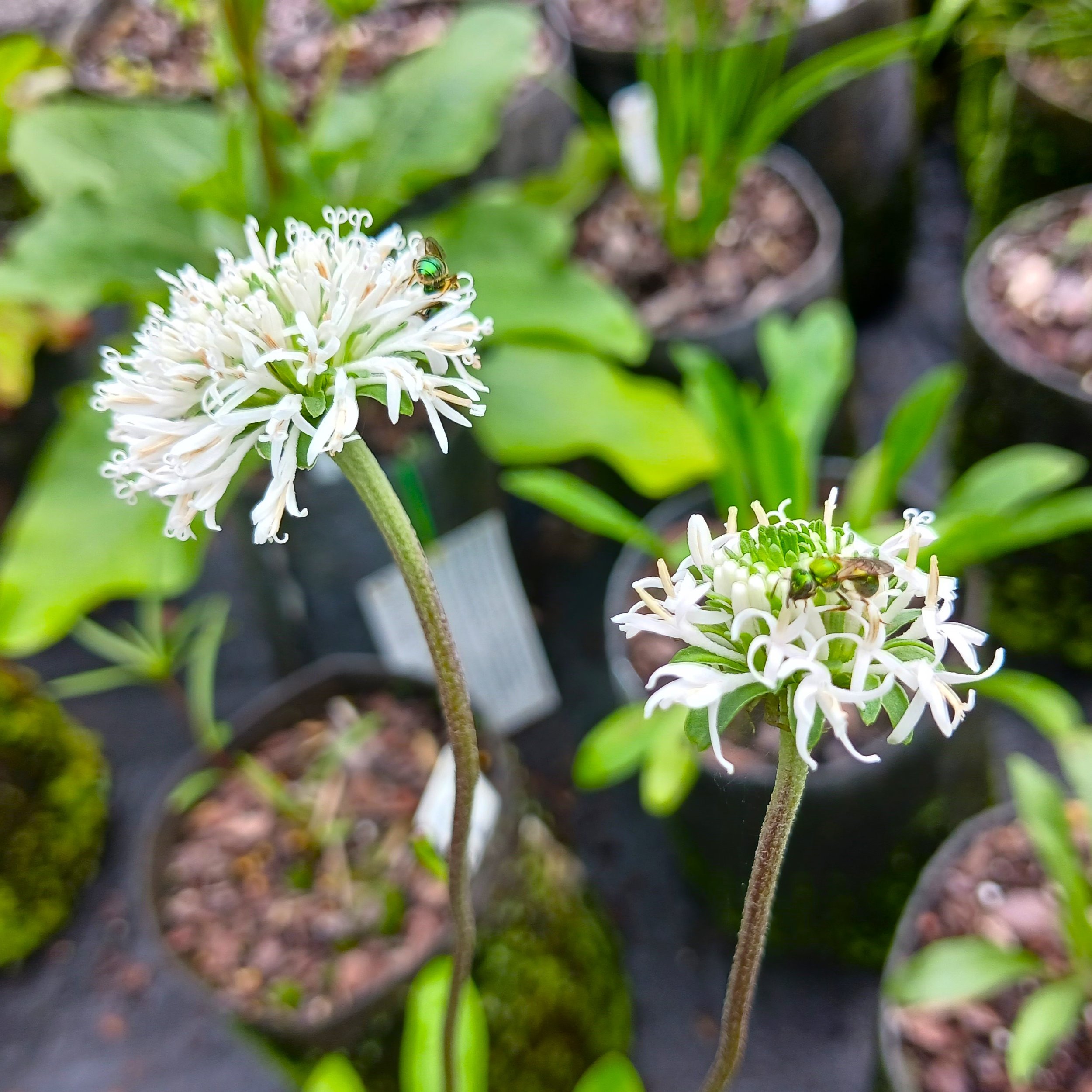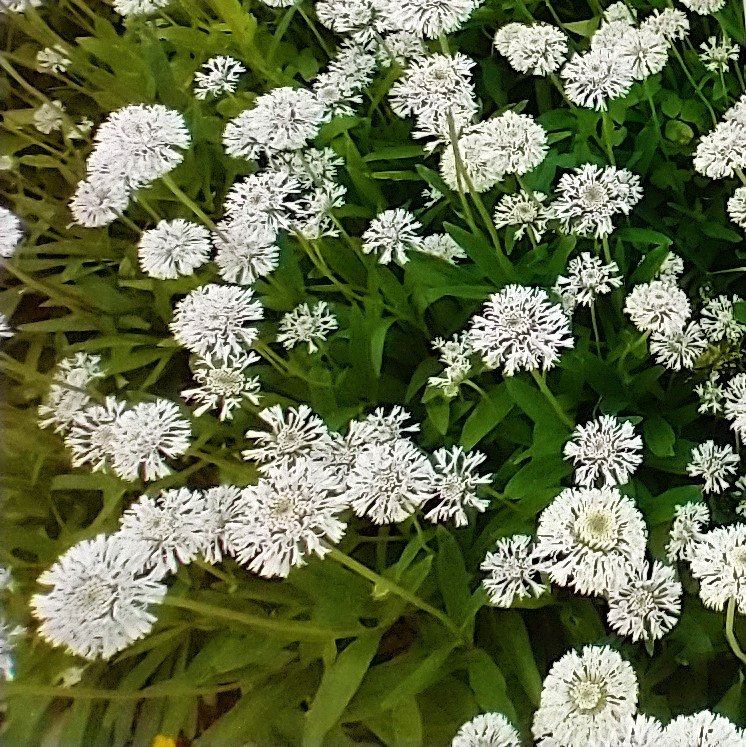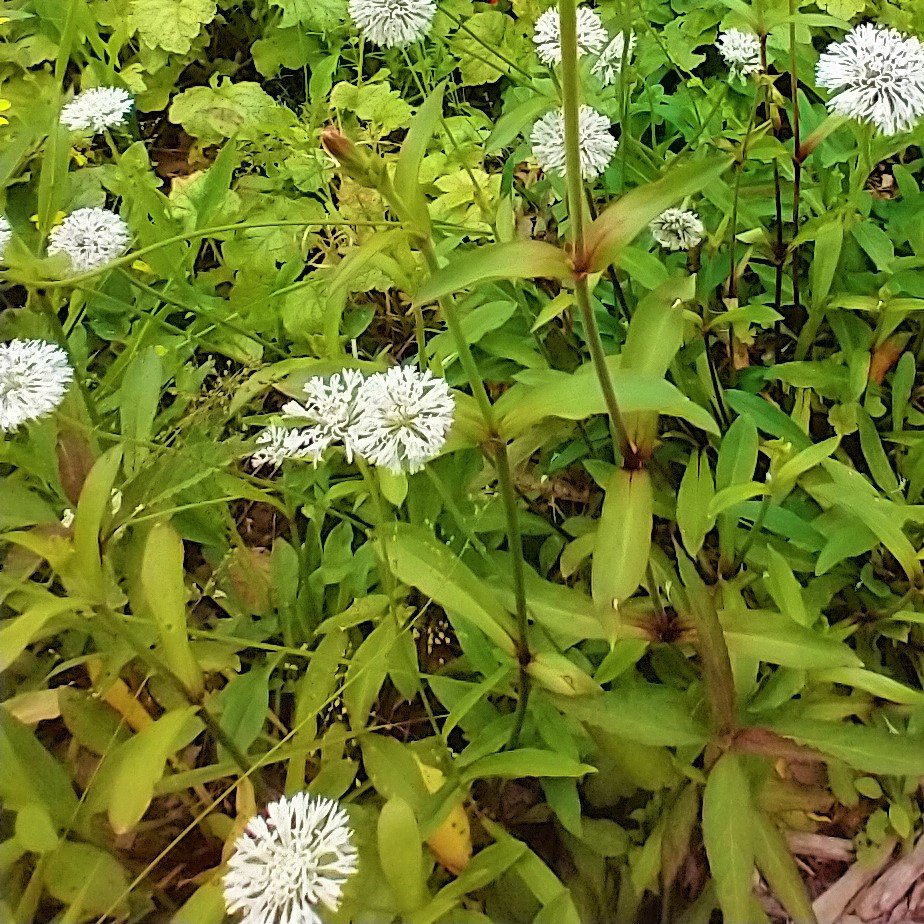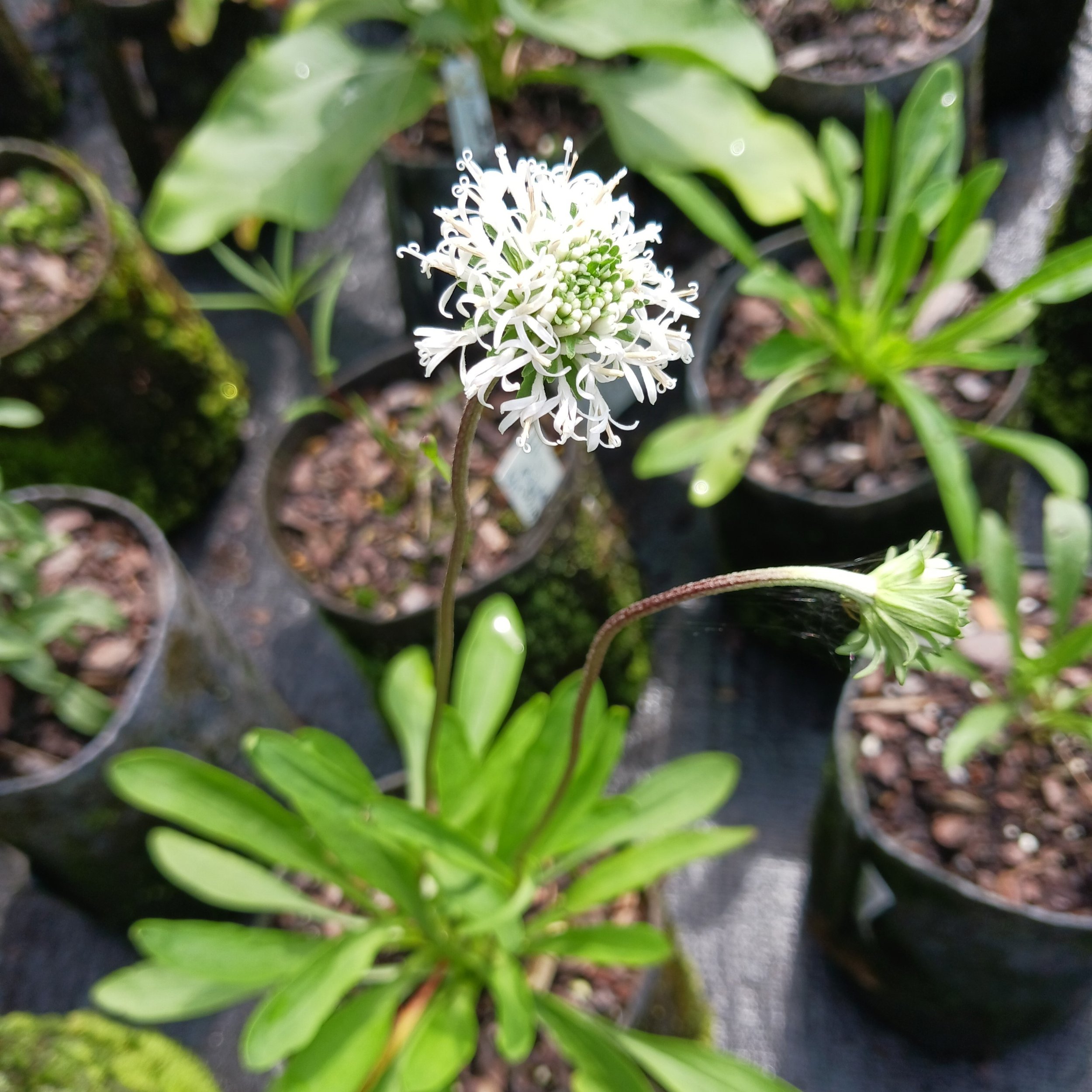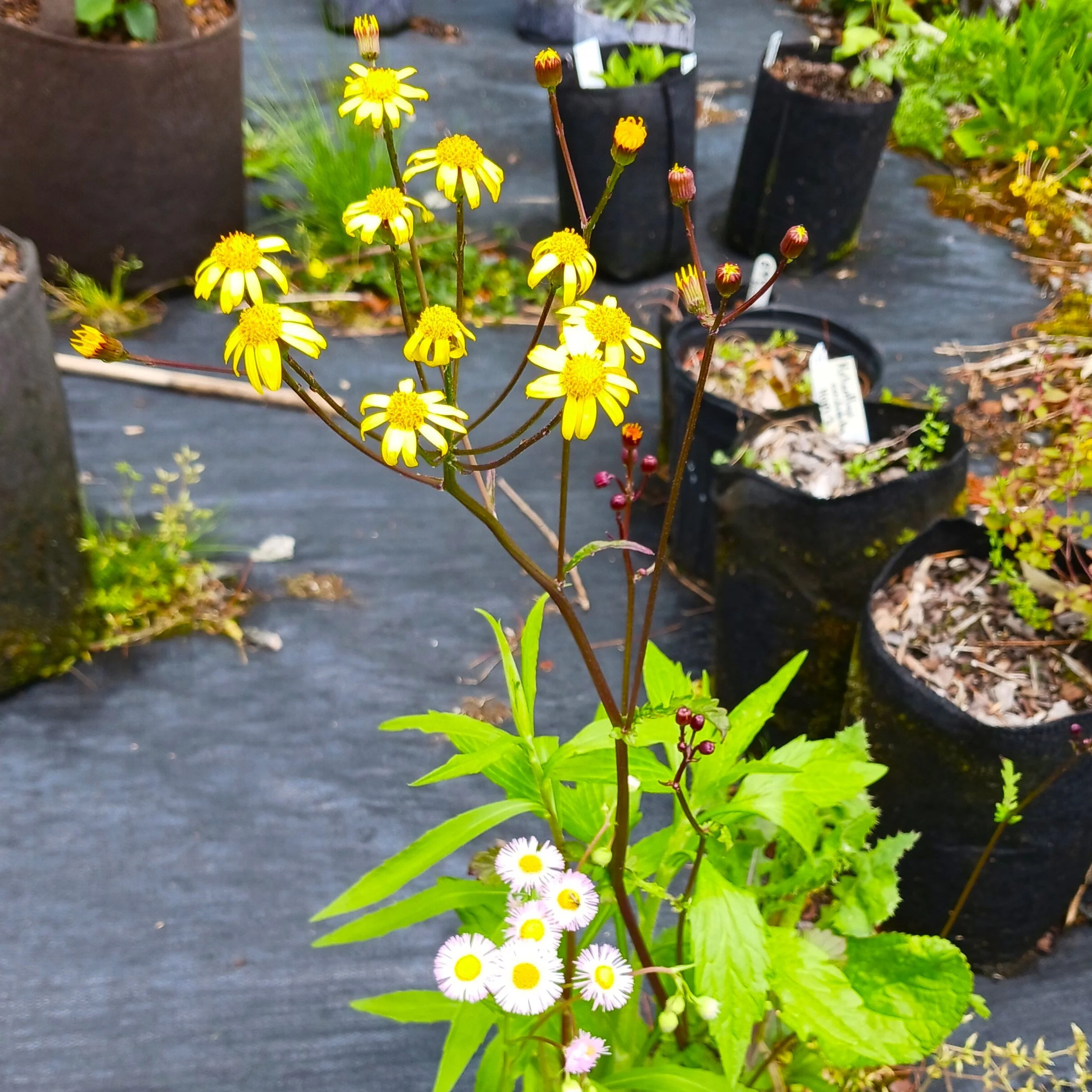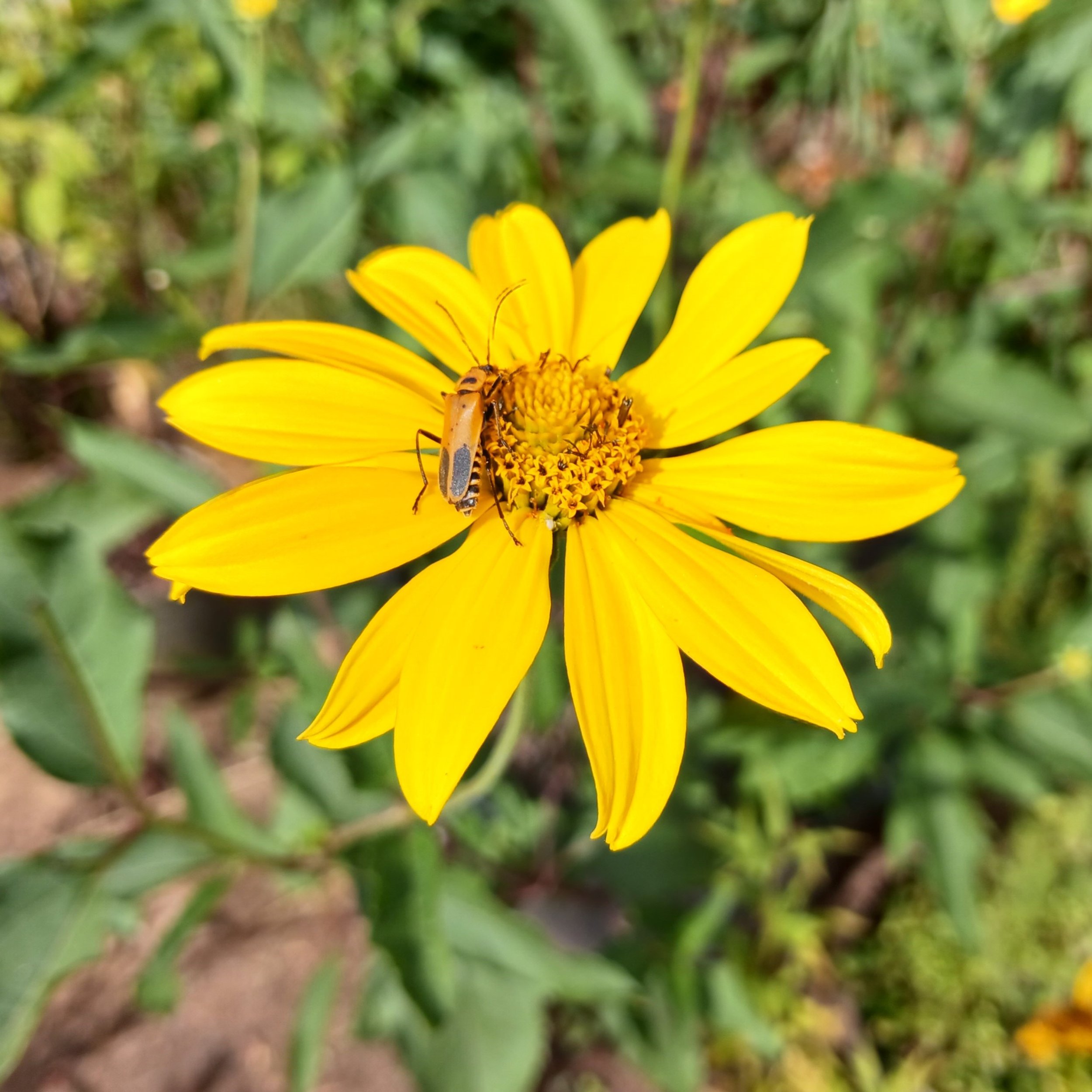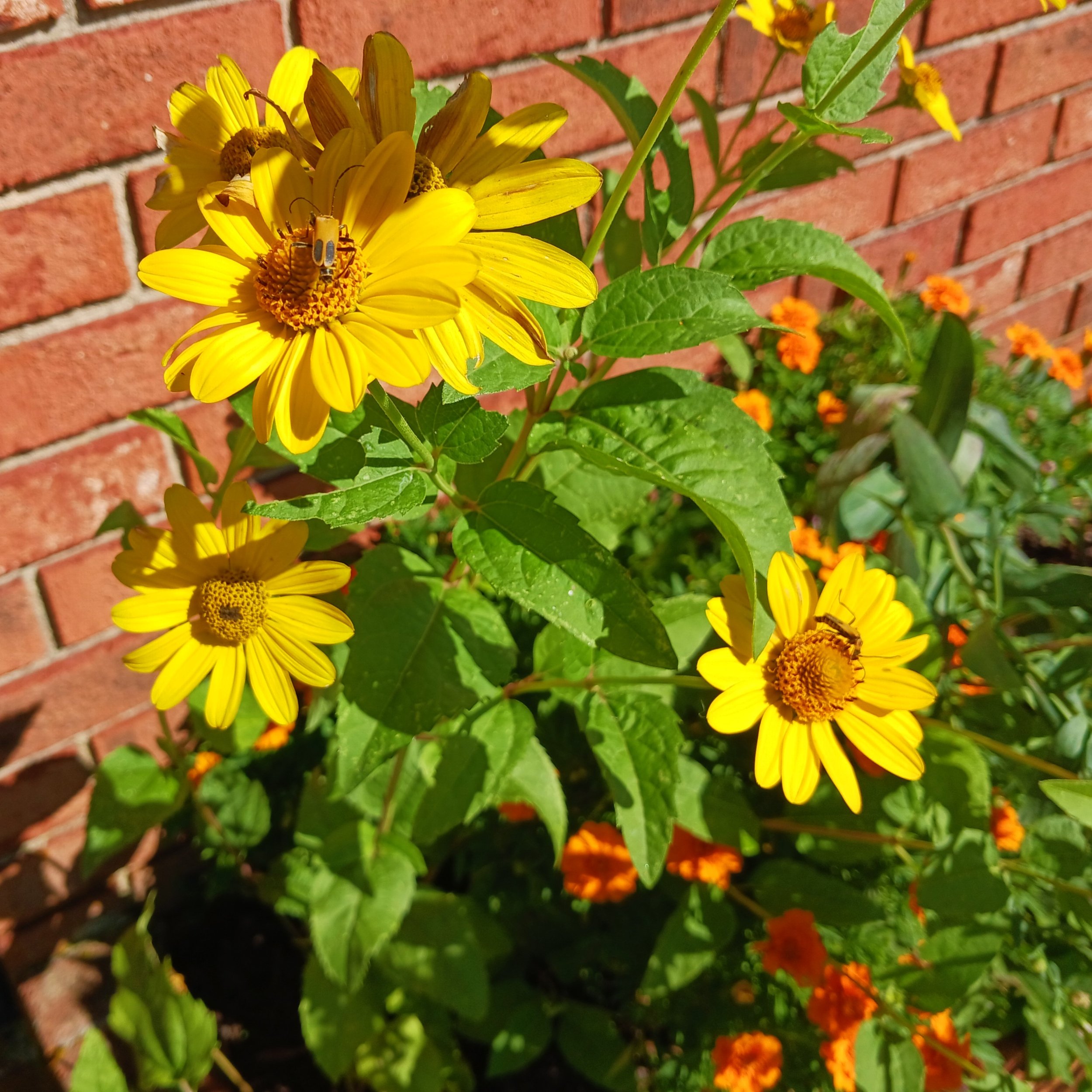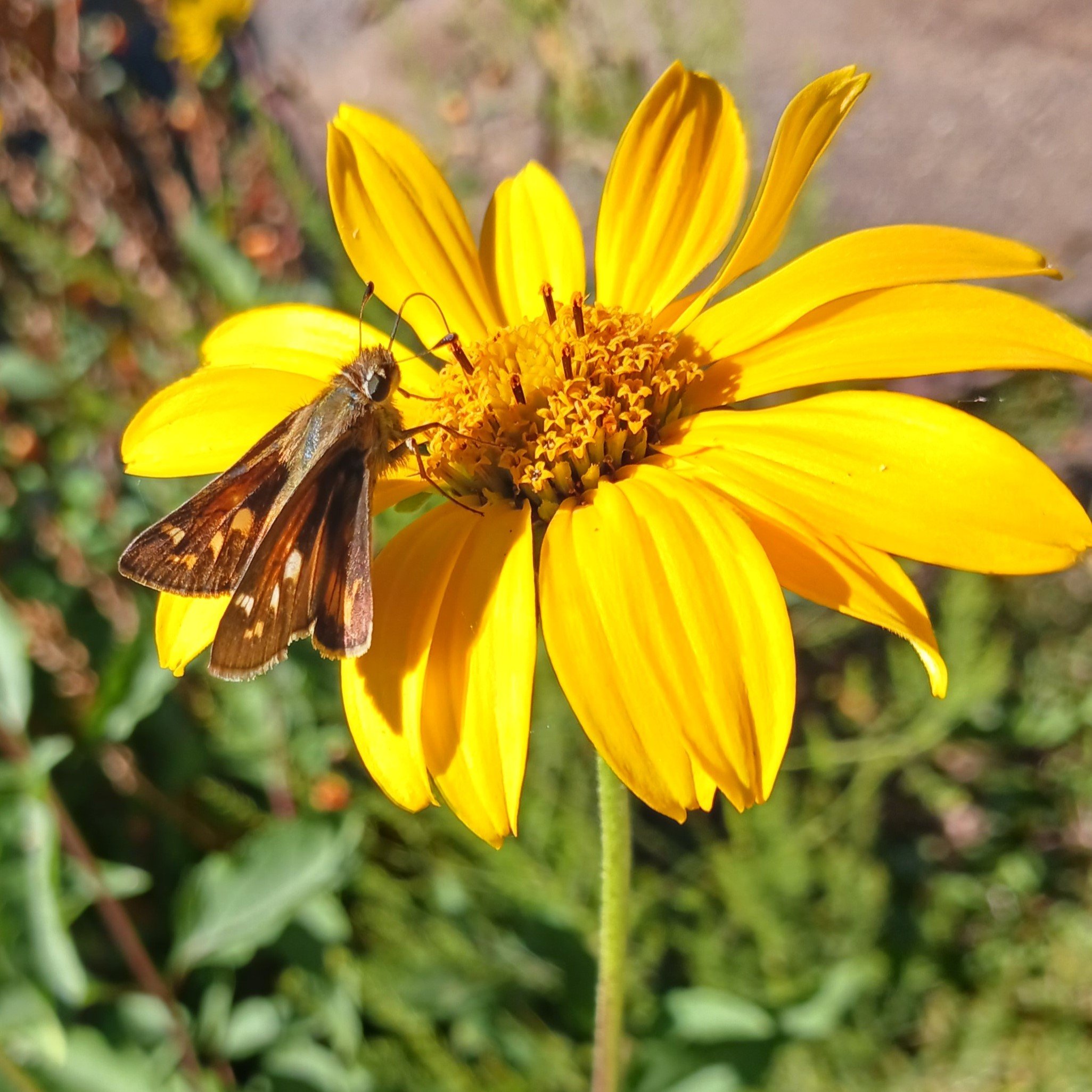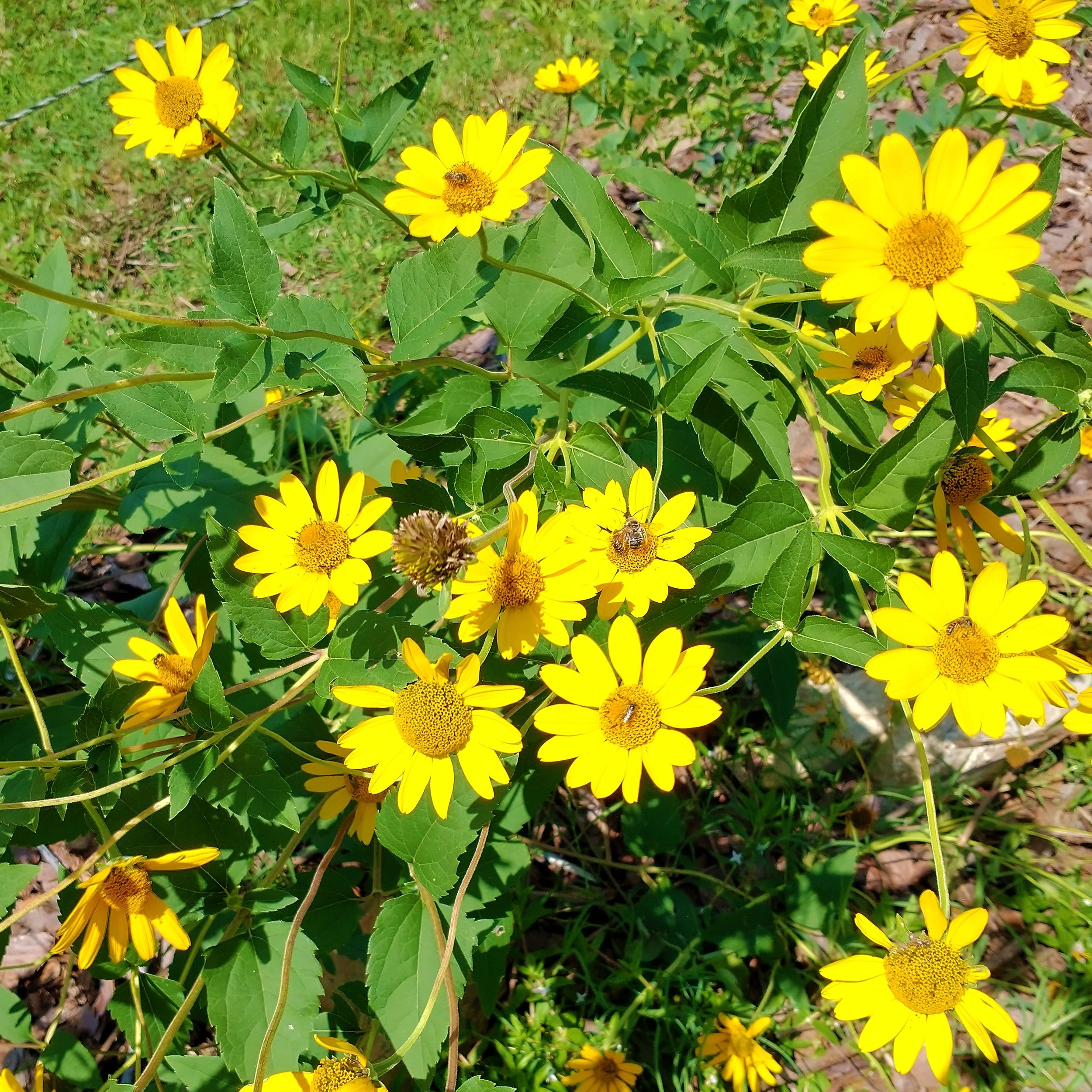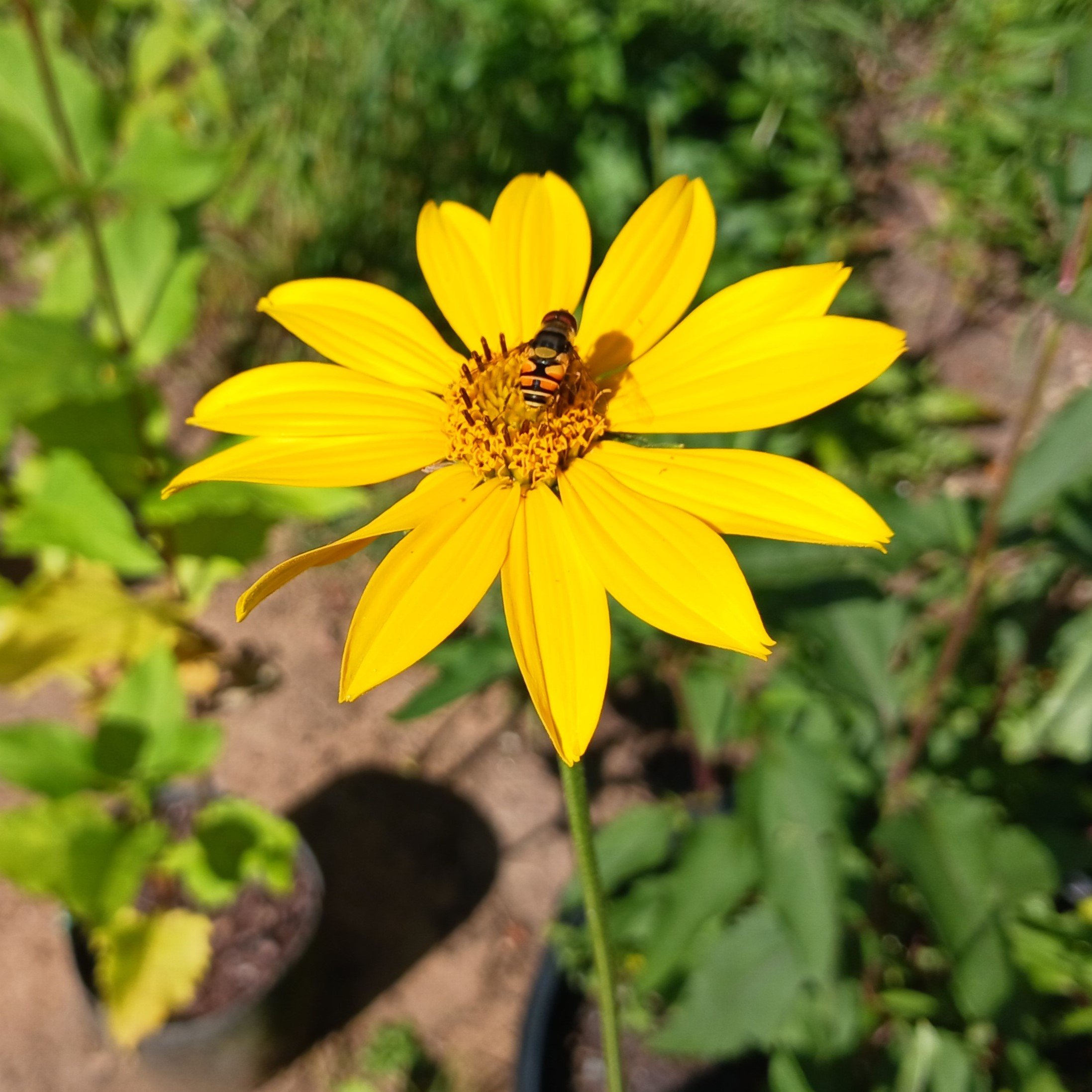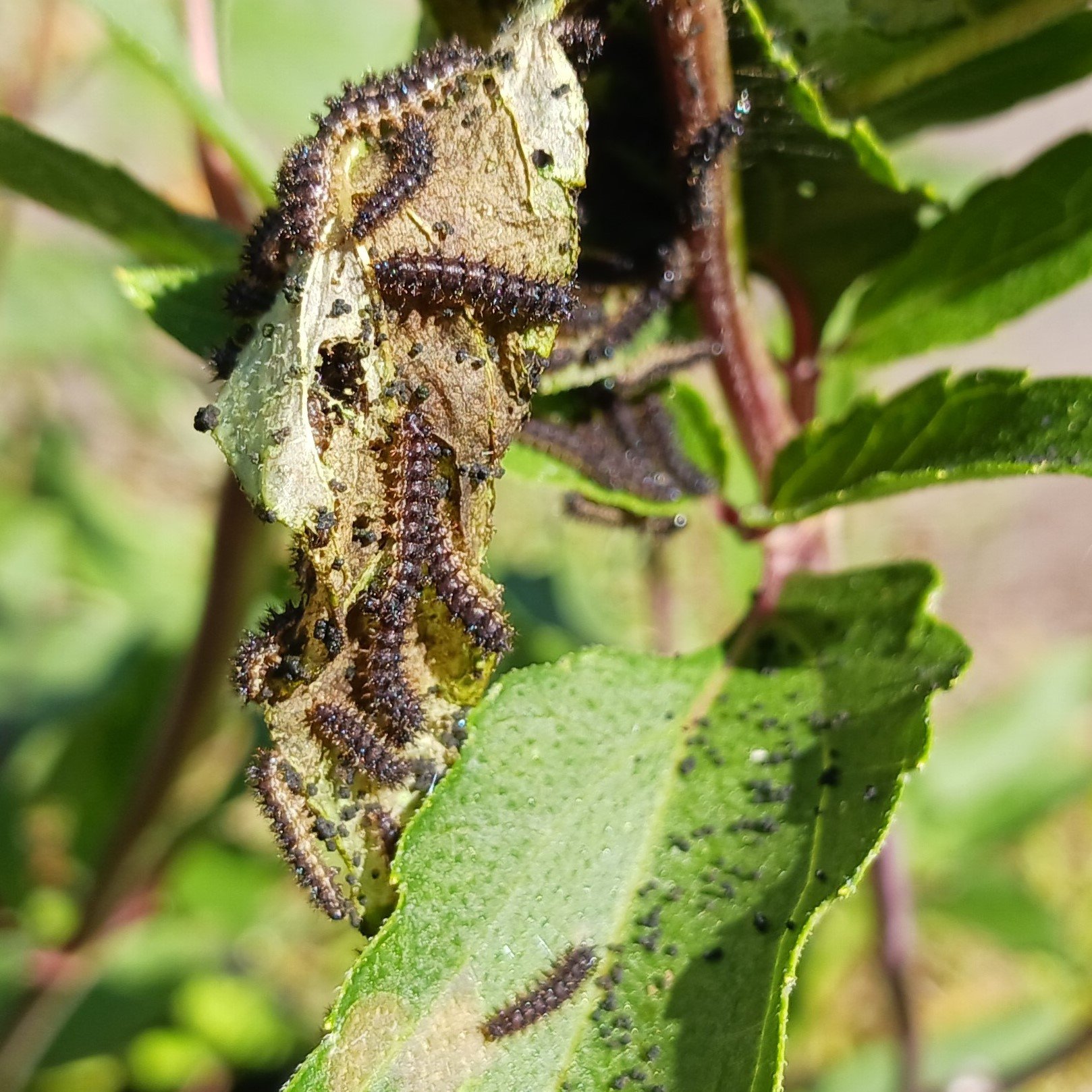NC Ecotype! Marshallia obovata is known for being an unusual and eye-catching perennial wildflower, as anyone who has seen it in full display well knows. It grows low to the ground, with flowers reaching only 1’-2’ in height, but given enough time it can form colonies of delicate round white blossoms, blooming for a short period from April to May. It is particularly tolerant of drought, and can grow in full or part sun in dry patches, beds, or rock gardens. Its basal leaves are actually evergreen, and can form a living mulch to protect the adjacent soil from drought and temperature extremes. Although it grows too slowly to be an ideal ground cover, Marshallia obovata can be a great addition to any garden or landscape.
The particular faunal associations of Marshallia obovata are not yet well characterized, but we know it is attractive to a variety of bees and butterflies. It blooms in mid to late spring with easy to access blooms that can be attractive to hungry insects.
Pollinators: bumblebees, sweat bees, butterflies, beetles
Host Plant for Butterflies/Moths:
Wildlife Value: Hummingbirds, Songbirds, shelter, winter cover
Deer Resistance: deer may browse
Native Region: Piedmont, Coastal Plain
Seed Origin: Orange County, NC
Ecoregion: 45 - Piedmont
USDA Zones: 7-8
States found in our region: AL, GA, NC, SC, TN, VA
Other states found: FL


